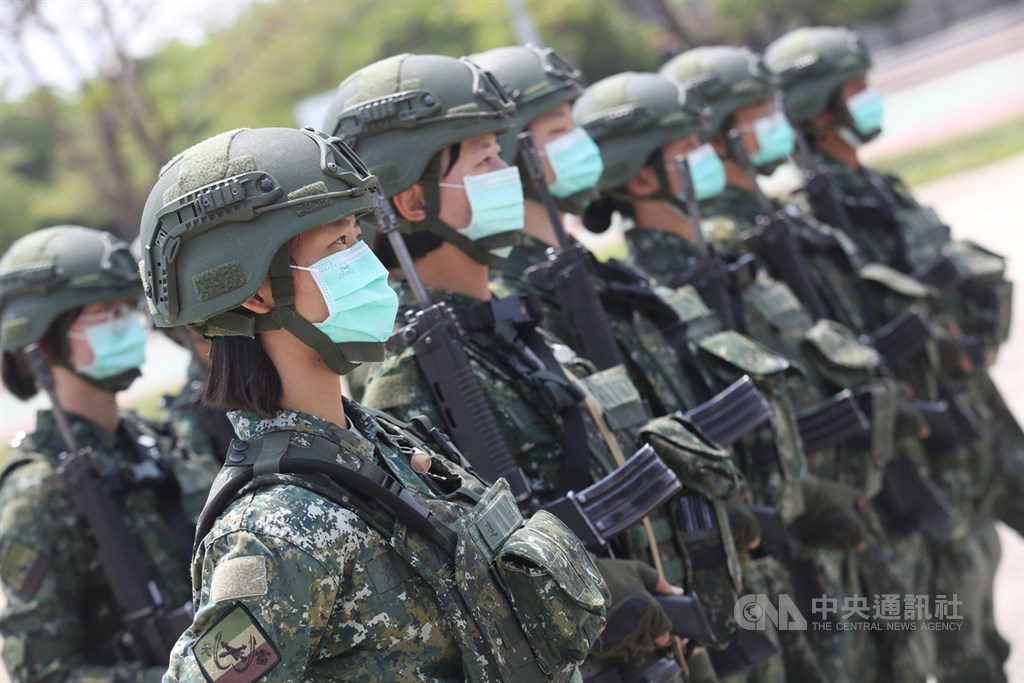
The Taiwan Strait is a key route of trade and is as important as the Malacca Strait, between the Malay Peninsula and the Indonesian island of Sumatra, for the free flow of commerce in the Indo-Pacific, a key member of the Senate Armed Services Committee said on Tuesday.
Sen. Tammy Duckworth, (D-Ill.) said Indo-Pacific nations view the U.S. Navy’s strait transits through the Taiwan Strait and through disputed territory in the South China Sea as welcomed.
“Just being a presence in the region is needed” when the Chinese are using its fishing fleet to assert extra-territorial claims, she said.
“The PRC [People’s Republic of China] is doing everything to disrupt the democracy” that is Taiwan, down to threatening countries with economic retaliation if they shipped vaccines to the island that China regards as a renegade province. The senator termed China’s actions a “blockade” of Taiwan.
Duckworth added most Americans don’t know that Taiwan shipped to the United States personal protective equipment and ventilators at the outbreak of the COVID-19 pandemic in this country.
“Vaccine diplomacy [by the United States] is very welcome,” not only in Taiwan, which will receive 4 million doses.
“The people of Taiwan needed to know the U.S. would not abandon them,” and other nations needed to know that there were “no strings attached” to the American shipments of vaccines to them, “unlike China.”
She called for a “partnership for peace” between Taiwan and American states’ National Guard components as a critical means to ensure “we’re not starting from scratch” if China ever attempts to invade the island.
A “habitual relationship” like Illinois has with Poland in training for natural disaster response to securing territory would benefit the U.S. relationship with Taiwan.
Duckworth, an Iraq war veteran and retired member of the National Guard, added that the “partnership for peace program” has “paid dividends for us for little cost.”
The program was started in 1993 following the collapse of the Soviet Union and was designed to train former Warsaw Pact nations in how a military operates in a democratic republic.
As for placing American ground-based weapons in Indonesia, Vietnam, Thailand and other nations close to China, Duckworth said, “we have to engage with them” in those kinds of discussions to deter Beijing in the future. But engagement goes beyond military training and basing, she said. “We certainly need more trade agreements” in the Indo-Pacific to counter Beijing’s use of economic muscle to get its way diplomatically and in threatening military force if it doesn’t.
Duckworth said she believes the current Authorization for the Use of Military Force, passed in the wake of the Sept. 11, 2001, terrorist attacks on the United States, “is no longer valid.” In calling for a new law, one that could cover Africa – “the new nexus of terrorism” – she said members of Congress should “take a deep breath, have that discussion” and then vote.
As for the withdrawal from Afghanistan, Duckworth said the Afghan government “haven’t stepped up” after 20 years of American security, economic and diplomatic assistance in stopping the Taliban.
She said the question really is “what do the American people want” in Afghanistan now?





